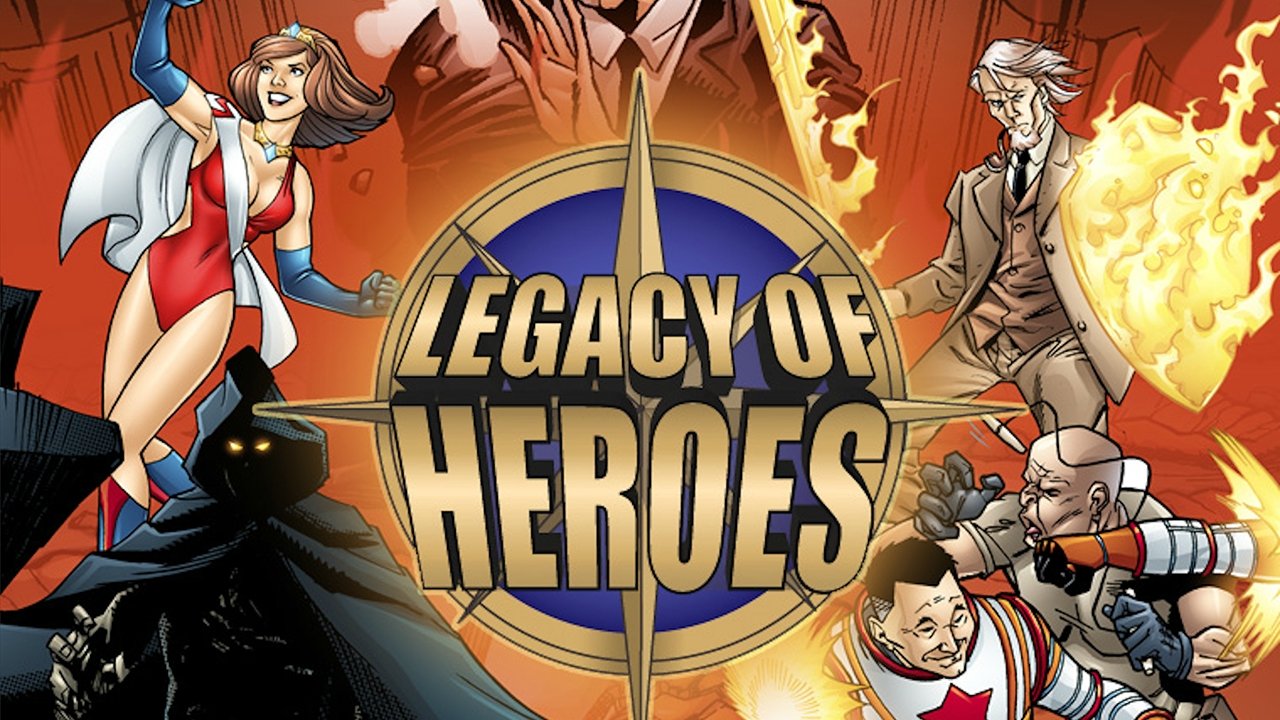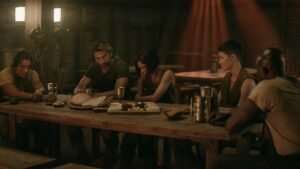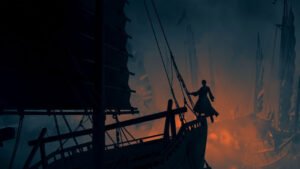Brian David- Marshall has been working in and around comics for many years. He started his career Deluxe Comics where he got to work with industry veterans like George Pérez, Keith Giffen, Paul Smith and Dave Cockrum. Other than giving him his start Brian also credits his time at Deluxe with giving him a somewhat unrealistic impression of what an entry level position is in the comics industry.
Since his then Brian has gone on to work for companies like Wizards of the Coast, Marvel and Malibu Entertainment. During his time at Crusade Entertainment he worked with more comic veterans like Billy Tucci, Gary Cohn and Dan Mishkin. Now he’s working on Legacy of Heroes, a collectible card game MMO. In this interview we spoke about his latest project, comics, CCGs and how to make a successful freemium title. Be sure to give the audio from our interview a listen as well for some extra discussion on Magic: The Gathering and what it’s like to be a commentator for one of the world’s most popular CCGs.
You can hear the full audio interview here:
{play}https://www.cgmagonline.com/media/audio/Interview_BrianDavidMarshall_LegacyOfHeroes.mp3{/play}
Comics and Gaming Magazine: Coming from comics and with an extensive background in Magic: The Gathering did you feel that working on a CCG like Legacy of Heroes was natural next step for you?
Brian David-Marshall: It was really a dream experience for me actually. When my business partner and I started To Be Continued we hadn’t been intending to create games, our goal was to bring the comic book medium to different places where it hadn’t gone before. As we were meeting with people our gaming experience came out and games were really exploding in a way that we couldn’t ignore. There was definitely this part of me that was gearing up to spend some more time with comics and I didn’t really get to do that once our business model started taking off. This has been great for me because I get to use everything that I’ve had in my professional experience since the late 80s into one project. It’s the things that I’m passionate about, the people that I’ve worked with, and the things I’ve learned along the way. So it’s been great and is kind of perfect place for me to be right now.
CGM: Is Legacy of Heroes your first foray into the freemium market?
BD-M: No, I mean that’s kind of what 5
Planet Games does. 5
Planet Games was founded about two years ago by two friends who were looking to create a gaming experience on Facebook that was geared toward more “hardcore” gamers. They were guys that came from an Everquest background, from a Diablo background, and they wanted to see Facebook games that were more engaging and offered a deeper play experience than what they could find on Facebook. So they created a fantasy role-playing game called Dawn of the Dragons which is still thriving today. That’s definitely using the freemium model, you can play free every day, you can buy troops, you can buy equipment, and all sorts of stuff. They then did second RPG called Legacy of a Thousand Suns, and at that point they wanted to get into collectable card games which is how we came into the picture. Together we created Clash of the Dragons which is integrated into the mythology of the their first game Dawn of the Dragons and yeah , It’s been great. There’s definitely the ability for a player to get cards and play for free, but there’s also an opportunity for someone who wants to get deeply engaged in the game and really explore all the storytelling possibilities, all the art, all the gameplay mechanics, and like any card game buy packs of cards. One of the things we do to offset that is these “World Events” in our games where someone who’s a big money user will help everyone else in the game get more out of it by helping them take down a mega monster or something and everyone who helps will get something special.
CGM: When you were working on Legacy of Heroes, what were your primary goals while developing the game?
BD-M: Honestly, my primary goal was to have it be very very true to the comic book superhero genre. I really wanted people look at it and have the visual presentation of a comic book. I wanted the characters to be archetypical but not derivative of other characters, and I wanted people to have that experience of being in a comic book story and crossing over with all these other characters. My goal was that if someone came to the game because they were a comic book fan that they would come away from it and go “Oh wow! Those guys really love comics.”
CGM: Currently Legacy of Heroes has four classes for players to explore but I’m wondering if you have any plans to expand the game with additional content or to make it available for additional gaming platforms like iOS or Android?
BD-M: Yes that’s certainly being planned for the near future but probably not before the end of the year. That’s been the big push for us, to get all our games over to mobile platforms. As far as Legacy of Heroes content goes, somewhere in either December or January we’ll be launching our second game in the Legacy of Heroes universe. Which will follow our RPG model and we’ll be able to tell some other stories and focus on some other characters in that universe. What’s great about both of those two games going forward is that starting in November with Legacy of Heroes, each chunk of content that we release will be accompanied by a 12 page comic book. We’re going to release them digitally through ComiXology, were working with a publisher but we haven’t signed the final paper work so I can’t reveal who that will be just yet. The new game will also have a 12 page comic tie in, so we’ll be producing about 24 pages of comics a month, and we’re working with Steve Ellis and his studio to do that storytelling so it’s going to be terrific.
CGM: What do you think is the most important element of a successful freemium or free-to-play game?
BD-M: I think that there’s a number of different ways to answer that, one is that new user experience has to be different. It’s something that were constantly re-evaluating and we’re constantly chasing after that ideal new user experience. Like how do you convey all the complex mechanics and moving parts in this very engaging way without seeming too “noobish” [sic] or condescending but also you still want people to understand it and be able to play the game. The other is to be very respectful of the player experience for both the free player and the player who is going to be deeply invested in the game. Respecting both of those play experiences is very important. We’re constantly play testing the game experience in the New York office from a free player’s perspective. Because we’re putting the game out there honestly, it’s not a trick. If you want to come and play this game for free? Then come in and play, we want you there. We do these player councils for all our games every year. Every nine months or so we fly a conference room full of our players to the California office and we meet with them. We bring in all these different player types and one of them is always a free player, and that’s really important to us. You also want to respect the play experience of the monetized user, you want to make sure that you’re giving them a rewarding play experience that lets them feel appreciated as well, so it’s a delicate balance. CGM




